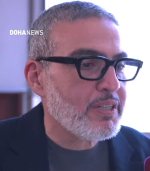
Banks could see bonuses cut, dividends limited or lending levels restricted if their activities are considered too risky, the head of their new regulatory body, the Prudential Regulatory Authority, has said.
Hector Sants, who will lead the PRA, promised the new body will be tougher and more intrusive than current regulator, the FSA, and make its own judgments on the risks posed by a bank's activities.
The "central presumption" is that regulators cannot rely on what banks tell them and must carry out their own analysis, he said in a speech in London. Being focused just on financial stability will also help it avoid some of the mistakes made in the run-up to the credit crunch, he added.
In extreme cases, the new approach could mean a bank being forced to stop trading and wind itself down if the situation is deemed serious enough,
The former banker is currently chief executive of the FSA, but that organisation is being abolished and he will move over to run the PRA under the new regulatory regime coming into force next year.
In an attempt to avoid a repeat of the crisis that prompted taxpayer-funded bail-outs of Northern Rock, Royal Bank of Scotland and Lloyds Banking, the overseeing of the UK financial markets will now be handled by two bodies.
The PRA will deal with financial stability while the Financial Conducts Authority will handle markets and consumer protection.
Mr Sants said one of the failings of the FSA was that it never had the full support of parliament or the public.
To help avoid this happening again, the new body, which will be responsible for 2,000 financial companies, will be fully accountable and have the power to publish reports on failed firms.
The FSA caused uproar last year when it refused to publish a full report on why Royal Bank of Scotland had to be rescued, instead stating the conclusions in a one-page press release.
Press Assocation




































